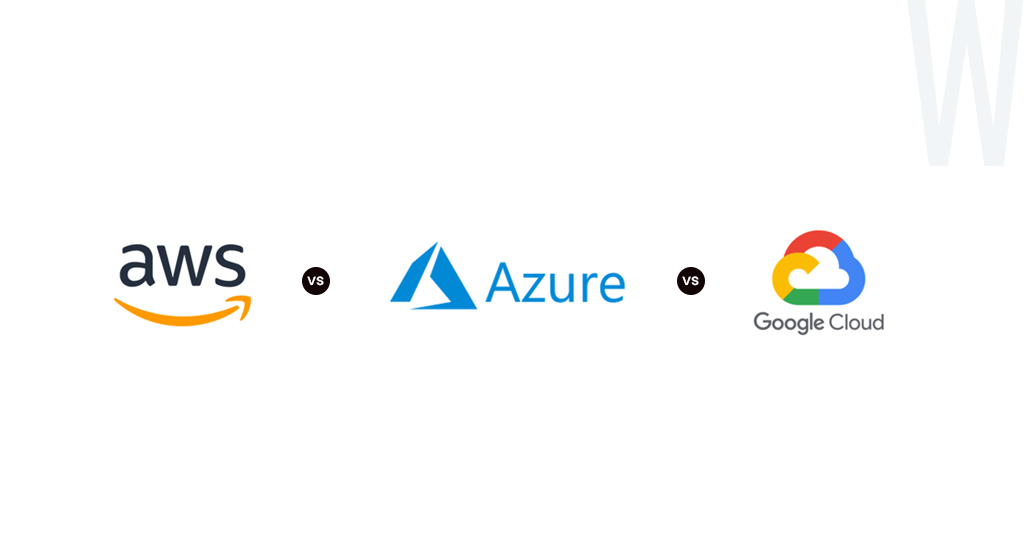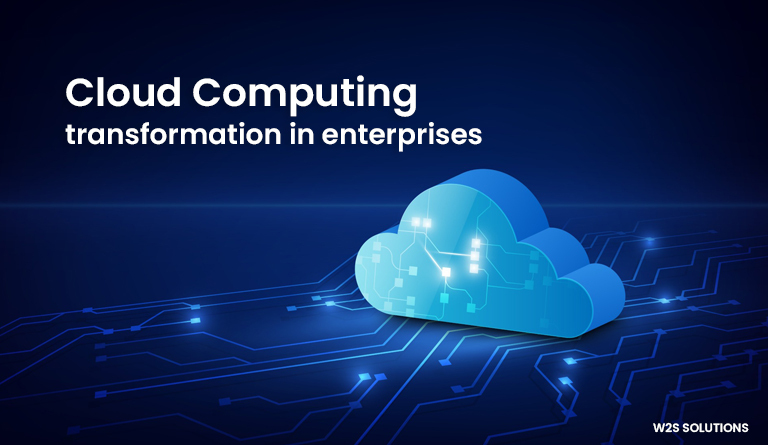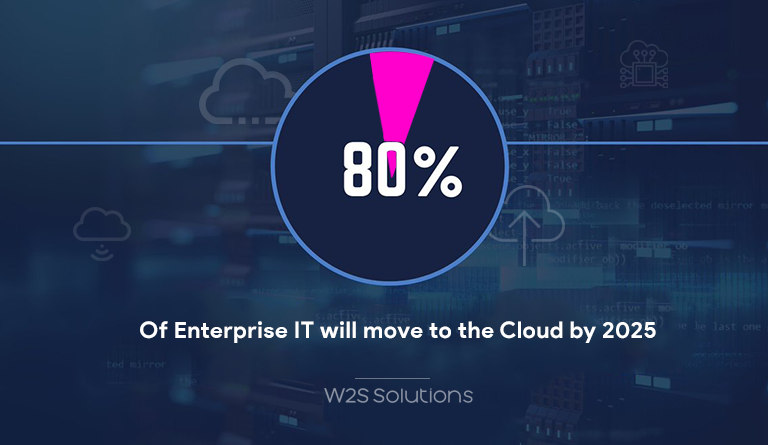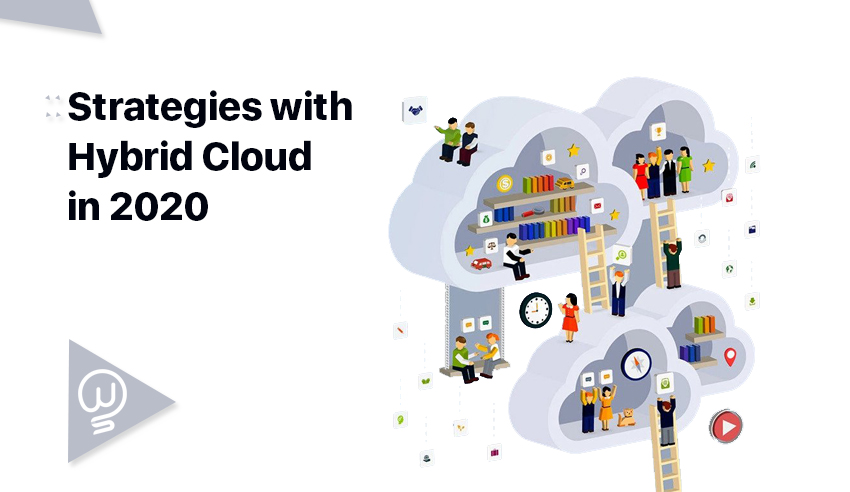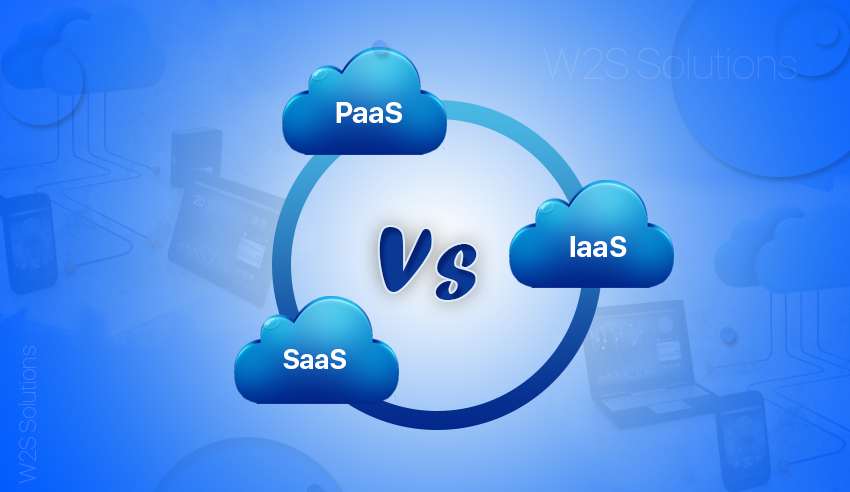Overview: The concept of the cloud is no longer mysterious. In the context of digital transformation and emerging technology, the term “cloud” has spread so widely that we now view it as an essential component of daily life among enterprises. Cloud computing is an on-demand technology that is driving the digital transformation of industries across the globe. The approaches enterprises use to move to the cloud can provide them with a competitive edge and spur rapid expansion. Sounds great, right? – Keep reading!
Enterprises frequently have different aims when putting cloud innovation approaches into action today. Most of those top enterprise IT departments don’t have the funding or workforce to keep up with basic business requirements, let alone be creative and secure funding for that creativity. According to a study, hybrid cloud deployment was the most significant cloud investment for 2022 by 45% of respondents.
A new approach that unifies cloud innovation strategy with enterprise goals and enables firms to make financial and technological decisions today seems to be necessary for the future of cloud computing. Let’s analyze how to do this most successfully by providing practical guidance on how innovation may be pushed by more effectively embracing cloud computing and how to make this approach work in the long term.
What are the best cloud computing approaches for enterprises?

-
‘Cloud-First’ Approach:
One of the most effective strategies is to start with the “cloud-first” approach. The relevance of cloud-first is that it is adopted by the entire company, not just the IT division. This means that cloud solutions must concentrate on entirely using cloud technology so that enterprises can reap the rewards and make higher revenue. Failing to use this approach will cause the company to lag behind its rivals.
-
Hybrid Cloud:
Hybrid clouds merge the public and private clouds into a single architecture, but some enterprises are stuck between the advantages and disadvantages of deploying each. Hybrid cloud infrastructures must be created from the ground up to offer more liberty or agility. Enterprises must consider the productivity and engagement of the developer when creating and delivering apps to hybrid clouds. A shift from private to public could occur due to changing app requirements.
-
Multi-Cloud:
Multi-cloud is a word that refers to the utilization of various cloud systems within a single architecture. Managing a single provider can be complex, but the difficulties are heavily affected in a multi-cloud approach. On-demand and self-service are offered, but it is more critical for companies to control their consumption and use different suppliers.
How will cloud computing solutions benefit your enterprise?

-
Enterprise flexibility:
Employee involvement in data storage issues will decrease with the implementation of cloud solutions. The working environment will be more flexible because they can access data whenever needed. Cloud computing companies provide more options, better flexibility, and office space compared to hosting on a local server. This results in increased productivity and more time to concentrate on critical business operations.
-
Enterprise reliability:
Enterprises have already seen significant disruptions during the pandemic. However, those with the most fantastic backup and disaster recovery systems will achieve success. When corporate activities are liberated from physical equipment constraints, cloud computing can offer a substantially more dependable response in the worst-case scenario. Data access with the help of big data analytics solutions can resume immediately in the event of a server failure, thanks to reliability in cloud architecture. Thus, there will be less production loss.
-
Enterprise scalability:
The solutions offered by cloud transformation services for enterprises are considerably more adaptable using the cloud. While scaling a local server is complex, cloud solutions come with built-in scalability. Your cloud storage can be immediately expanded if website traffic peaks and afterward reduced back when needed. The prices reflect the fact that packages are not required to be permanent.
-
Mobility:
Cloud computing lets employees access corporate data much more quickly and effectively. Mobile access expands options for independent contractors, gives workers the freedom to travel, boosts productivity, and encourages a better work-life balance. Enterprises are up to 24% more likely to increase their use of cloud technologies if they prioritize employees’ job satisfaction.
-
Monetary savings:
Enterprises can be worried about the upfront expenses of implementing cloud-based solutions, but they also need to consider long-term capital returns. Project launch costs and time will be reduced by having more instant access to data, and as cloud services may be paid for on a pay-as-you-go basis, there is less chance of overpaying for services you won’t utilize.
-
Security:
Many people worry about the security of the data stored by cloud hosts. The cloud is typically safer if the proper security precautions are taken. However, hosts are typically committed to security, and research has shown that internal data theft and human mistake are the primary concerns. 94% of firms noticed improvements in security due to moving to the cloud.
Why will the cloud be a driving force for your enterprise innovation?

What if your enterprise had a secret weapon behind its sleeve that it could use to decrease expenses, increase overall business performance, satisfy customers, access new markets, and generate new revenue streams? The cloud revolution has arrived and is already providing enterprises with real commercial benefits. Enterprises worldwide are using the cloud to drive business innovation after achieving technological agility.
The cloud is currently the preferred platform for accelerating enterprise cloud transformation. Enterprise innovators embrace cloud technology to enter new markets, reinvent consumer interactions, and create new business operations. Innovative firms use the cloud to develop new products and services and adapt their business models to new distribution channels or payment methods.
The cloud is ideal for encouraging enterprise cloud adoption and innovation. The cloud enables innovators to take advantage of the skills present throughout their ecosystems to create new operational capabilities that tip the balance of power in the industry. One of the most significant risks for innovators using the cloud is a fast-follower rival exploiting the cloud’s ability to pass them. Using the cloud to support enterprise innovation in five critical ways. What are they?
Cloud enables enterprises to:
- Add more features to the product or service while enhancing usability.
- Create successful customer journeys that are adapted to specific consumer environments and preferences.
- Launch new products and services quickly after prototyping them.
- Reach out to potential customers.
- Gain access to a new market or sector.
A few years back, the primary goal of enterprise cloud implementations was focused on cost reduction and IT infrastructure optimization. Your competitors might be able to outperform you if your organization doesn’t utilize the potential of the cloud to achieve enterprise innovation today.
Wrapping Up:
Cloud management tools can assist workload orchestration, and other automation tools improve the efficiency of routine tasks. Organizations can use techniques for cloud management tooling by choosing and deploying the finest cloud management solutions. The optimum approach is to utilize the least number of tools necessary to meet all management requirements. Finding the right approach that is the most effective and efficient will have the most significant influence, even if it is pretty likely that all deployments will be advantageous. Enterprises willing to adopt cloud computing approaches for their business needs can get professional support from the leading IT consulting company to avail of cost-effective cloud computing solutions to stay ahead in the global market.



